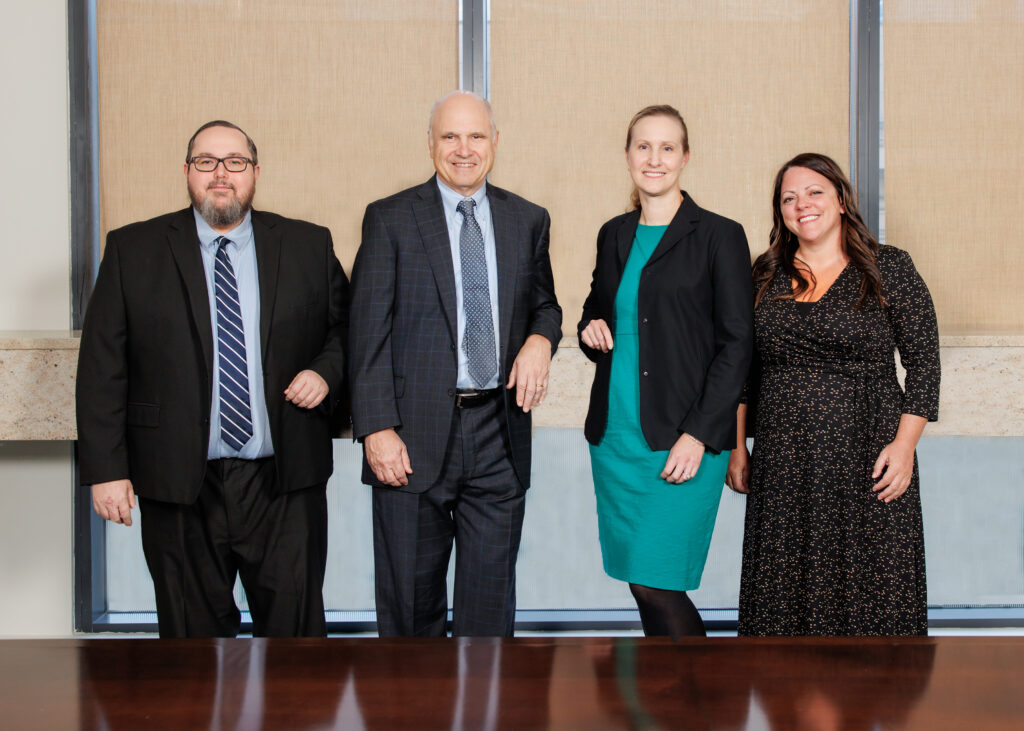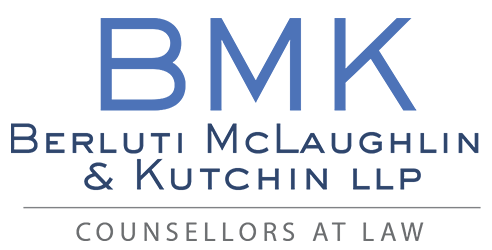
Sophisticated Strategies to Help You Protect Your Wealth and Pass It On.
Creating an estate plan is a very personal process and unique to every client. At BMK, we strive to help each client realize their individual goals, and we are committed to a team approach, working closely with a client’s accountants, financial planners, and other advisors to develop and implement comprehensive strategies to further each client’s diverse needs.
We counsel a variety of successful individuals, families, business owners, executives, and other professionals on all aspects of estate and business succession planning. Our skill and experience enables us to pursue a variety of sophisticated strategies to help our clients protect their wealth and pass it on to their loved ones.
Personalized Estate Planning, Based on Your Specific NeedsBased upon an individual or family’s needs, we can provide basic estate planning advice, including the drafting of wills, revocable (“living”) trusts, health care proxies, and powers of attorneys, or employ more sophisticated estate planning techniques. We extensively use family limited liability companies, limited partnerships and all forms of complex trusts, including dynasty trusts, spousal lifetime access trusts, intentionally defective grantor trusts, insurance trusts, and charitable trusts. Sophisticated strategies, when done correctly, assist our clients in sheltering wealth from taxes while also growing and protecting our clients’ assets. We carefully consider the estate, gift, generation-skipping transfer, and income tax consequences for every estate plan we draft to ensure the most tax-efficient results for our clients. Moreover, we help clients coordinate retirement plans, use life insurance, and design and implement annual gifting programs and other strategies to transfer wealth in the most tax efficient manner. While the minimization or elimination of taxes plays a dominant role in planning, our advice focuses on crafting the right estate plan for our clients capable of also accomplishing their unique non-tax objectives, especially where such objectives must be flexible to anticipate future events and needs.
Integrated Estate and Business Succession PlanningWe also advise closely held business owners with business succession planning to ensure the proper transfer of control and ownership of the business from one owner or ownership group to the next generation of owners. Many of our clients own family businesses and proper planning is essential to reducing estate taxes and preserving more wealth for the family for generations to come.
A succession plan for the family business must be developed and coordinated with the estate plan of the business owner. An integrated plan is essential to the continued operational and financial stability of a family business and to ensure that the value of the business will pass in a manner that will not give rise to avoidable taxes or disputes. In many cases, the integrated plan must include planning solutions for the spouse and children who do not work in the family business to ensure they are adequately provided for.
Comprehensive Estate AdministrationBMK provides assistance and guidance to ease the burdens of estate administration on family members grieving the loss of a loved one and the fiduciaries appointed to represent an estate. We offer assistance throughout the administration process and provide a comprehensive range of resources necessary to handle the probate court proceedings and filings, gift and estate tax matters, and the re-titling of decedents’ assets.
To begin the estate planning process, please fill out our Estate Planning Questionnaire or call our office to set up an appointment.
AREAS OF EXPERTISE
Trusts & Estates
Many people mistakenly believe that estate planning only involves the writing of a simple will. While that may have been true twenty years ago, today most estate plans consider more than just the disposition of a person’s assets at their death. A quality estate plan considers the potential taxes and fees involved in any disposition and sets up a contingency plan to ensure that your wishes regarding your health care, treatment, and the management of your assets during any period of incapacity are followed.
Financially, a thorough estate plan coordinates what happens to your home, your investments, your business, your life insurance, your employee benefits, and other property in the event you become disabled or die. Personally, a thorough estate plan includes specific directions to carry out your wishes regarding health care matters so that if you are ever unable to give the directions yourself, someone you have pre-selected can do it for you.
At the heart of every estate plan is what we call the “core documents.” These core documents include a will, a revocable trust (also referred to as a “living trust”), a health care proxy and a power of attorney. Together, these four documents provide instructions on how your assets should be managed and distributed during a period of incapacity or at your death, and provide instructions on your end-of-life health care wishes.
Beyond the core documents, there are a number of more sophisticated estate planning documents that can be used to help preserve your assets for future generations, reduce or postpone any estate or gift tax liability, and plan for succession of your business. Such sophisticated estate planning documents may include irrevocable trusts, generation-skipping trusts, qualified personal residence trusts (QPRTs), charitable remainder and lead trusts, family limited partnerships, limited liability companies and grantor retained annuity trusts (GRATs).
To ensure that an estate plan works as intended, it is not only essential that your plan be reviewed every few years, but also that your assets be properly titled to maximize the tax efficient results anticipated by your plan. For example, if a married couple with an estate plan incorporating all of the core documents discussed above have a combined wealth of $4 million, it would appear that each of them would be eligible for the Federal Estate Tax Exemption, which is currently $2 million per individual, upon their deaths. In reality, however, if $3 million of those assets are in the husband’s name individually, and only $1 million are in the wife’s name, a portion of the Federal Estate Tax exemption would be wasted should the wife predecease her husband, leaving a portion of the husband’s estate susceptible to the estate tax at his death. Accordingly, it is imperative that the titling of your assets is considered in drafting and implementing your estate plan. At BMK, our emphasis on a team approach allows us to work seamlessly with our clients’ financial advisors to ensure that their assets are properly titled and that their estate plan works as intended.
An individual may also want to consider as part of their estate plan what is commonly referred to as long-term care planning. As the name implies, this type of planning addresses the potential or anticipated need for some type of long-term assistance with daily living activities in the future. For many people this planning considers Medicaid regulations in conjunction with an individual or spouse’s possible entry into a nursing home facility. However, long-term care planning goes well beyond “Medicaid” planning. For individuals who do not consider nursing home care an attractive goal, an array of other options are available to make the transition into retirement and beyond as smooth as possible. These options include long-term care insurance, home health aides, and reverse mortgages.
At BMK we dedicate ourselves to helping each client realize their individual goals and will work with you to create a customized plan that will help you achieve those goals. Our commitment to our clients does not end at the execution of an estate or business succession plan; rather, we will continue to work with you to ensure that your plans evolve to meet any new needs resulting from life events such as the birth of a child, moving to another state, divorce, dissolution or sale of a business, or the death of a loved one.
Estate Administration
Even with an estate plan already in place, managing the processes of probate and estate administration can be overwhelming to anyone struggling with grief. At difficult times like these, the peace of mind that comes from having someone you can depend on handling the probate process for you is invaluable. Estate administration includes both the probate process and non-probate transfer of the deceased’s assets, including life insurance, annuities, qualified plans, and trust assets. Additionally, depending on the size of the estate, administration may include compliance with Federal and State estate tax requirements.
At BMK, we help families and fiduciaries in the administration of both simple and complex estates and trusts. Our attorneys are highly skilled at handling all stages of the administration process including:
- Preparation of Estate Tax Returns
- Preparation of Fiduciary Income Tax Returns
- Re-Titling of Assets
- Distribution of Retirement Assets (e.g., IRAs and 401(k)s)
- Probate Procedures and Documents (e.g., Notices, Inventories, and Accountings)
- Post Mortem Planning Techniques
- Probate Litigation
- Advising Trustees, Executors and Other Fiduciaries
If you are looking for an experienced attorney to assist with a loved one’s estate or require representation as a fiduciary to an estate, please contact us to set up a consultation.
Business Succession Planning
According to recent figures published by the Small Business Administration, approximately ninety percent (90%) of businesses are closely held and family owned, but only thirty percent (30%) of those succeed into the next generation; and just half of those, a mere fifteen percent (15%), survive into the third generation. One can see that seventy percent (70%) of family owned businesses fail to succeed into the next generation.
One of the common themes woven through closely held businesses is that owners neglect to create a comprehensive succession plan or “exit-strategy” for themselves. As visionary entrepreneurs, owners labor tirelessly for years to create a financially solid and viable business that generates real wealth for them and their families. Frequently, the business is its owners’ single most valuable asset, and much of its value lies within the owners’ experience, contacts and specialized skill set. Put simply, the value of the business largely depends on its key individuals. What happens to the value of the business if its key people are no longer able to serve it? A second, closely related question is, “When I am prepared to leave the business how do I extract the value and wealth I’ve created in the business, from the business?” Once an owner asks these two questions, our experience has been that the client quickly realizes the need for, and the value of, a comprehensive business succession plan.
The most effective business succession plans are conceived at the formation of the business itself. It is never too early to consider creating a business succession plan. Typically, owners labor under the assumption that the plan focuses on the prospective purchasers of the business. Our belief is that this is merely one component of the plan. Will the successors be the owners’ partners, the owners’ children, a group of “key employees” already working for the business, or a third party (such as a competitor, key supplier or key customer)? Depending on whom the successors will be, payment terms and grooming considerations must be addressed in order to improve the chances that the business will survive. Detailed consideration must be given to the tax consequences of the structure of the deal in order to maximize the owners’ return on their investment.
The goals of a typical business succession plan are simple: to make sure there is a successful transition from the existing owners to the new owners and to protect and/or extract the business’ wealth created by the departing owners. When the current owners are no longer working for the business, either due to their retirement, death or disability, it is the carefully prepared business succession plan that ensures continuity for business operations and continued financial security for the departing owners and their families. Of course, there will always beclient-specific circumstances that must be carefully considered when devising a business succession plan. Some of the factors to consider include whether a client must provide for a surviving spouse and family, and whether there are family members actively working within the business.
Experience has proven that the key to developing an effective business succession plan is to understand both the client’s particular needs and goals. Through a series of meetings and conferences, both with the client and with the client’s other advisors (i.e., accountants, insurance agents, financial planners, etc.), BMK will craft a tailored business succession plan that will achieve the client’s goals based on the particular facts and circumstances of the client and his or her business. The process begins with the owner assessing his or her business and addressing a number of questions designed to sharpen the focus on the particular facts and circumstances of the business in question. Typical questions the business owner should be prepared to answer include the following:
- Do I want to walk away from my business when I retire, or do I want to slowly phase out of its operations? If I have partners who are remaining with the business after I leave, what are their thoughts and feelings toward my plan and what are my contractual obligations to them?
- Do I want to pass the business along to my family or key employees (insiders), or do I want to sell it to a third party, such as a vendor, supplier or competitor (outsiders)?
- Assuming I want to pass the business along to insiders, do these people have the business acumen to permit it to continue to thrive? Do all of the insiders get along with one another and, if not, what is the best mechanism to resolve disputes between them after I’ve departed?
- Do I need to extract wealth from the business to fund my retirement or support my surviving spouse and other family members? If so, how much do I need and what is the most tax advantageous structure for securing it? If not, am I inclined to “gift” my interest in the business to my family?
While these questions are not comprehensive, they are indicative of the type of questions a business owner must answer if he or she is to formulate an effective and meaningful business succession plan. Once the business owner’s input has been gathered and focused, our attorneys will develop and implement a plan to achieve the client’s goals. Techniques that are frequently employed include buy-sell agreements, irrevocable life insurance trusts, employment agreements for key employees, option agreements for equity purchases, installment purchase agreements, consulting agreements, employee stock option plans (“ESOPs”), deferred compensation agreements for key employees, phantom stock, and business merger and third party sales agreements.
Upon reflection, clients invariably conclude that a business succession plan is inextricably intertwined with the client’s estate plan. This is because the business succession plan touches and is impacted by various aspects of estate, tax, real estate, retirement and charitable (if desired) planning. While some advisors do not realize the importance of the interrelation between the business succession plan and the client’s estate plan, our firm prides itself on crafting comprehensive, client driven plans that encompass both business succession and estate and tax planning. Our plans are designed to provide your company with the greatest chance for continued success after your departure while simultaneously providing for your family’s, financial security. We at BMK look forward to formulating a comprehensive business succession plan for you that will protect you and your family by protecting and directing the wealth you have worked so hard to create.
Fiduciary Services
Being an executor, trustee or guardian places tremendous responsibility on the individual or company serving as the fiduciary. Many times an individual is serving as an executor, trustee or guardian for the first time and may be unaware of the full extent of the responsibilities associated with the position. Other times, even the most experienced fiduciary comes across a situation in which he/she/it may not know the proper way to respond. At BMK, we advise fiduciaries on the most effective strategies and techniques in administering estates, trusts, guardianships, and other fiduciary relationships.
With respect to estate administration, we guide executors through the process of probate, appear in court as needed, offer transfer of assets and resolution of claims assistance,and implement the estate plan of the decedent. We also can prepare the required estate and inheritance tax returns (both state and federal) and can partner with accountants for the estate to ensure matters related to income tax are handled in a manner advantageous to the beneficiaries.
In terms of trust administration, we advise trustees in all aspects of the administration process, including issues involving income, estate, gift, and generation-skipping tax, interpreting trust provisions, management or sale of trust assets, and advising trustees on maintaining good relationships with beneficiaries. Should a conflict ever arise regarding the fiduciary’s management of trust assets, our attorneys strive to structure a solution that validates our client’s actions and resolves the conflict short of trial. If litigation is unavoidable, our experienced trial attorneys will aggressively and effectively defend our client’s conduct.
Our services include:
- Assisting with the administration of a probate estate
- Interpreting trust documents
- Resolving questions of fiduciary duty
- Maintaining good relationships and avoiding conflicts with beneficiaries or between beneficiaries
- Managing or negotiating the sale of real property
- Litigating conflict issues
Resources
Coming Soon

